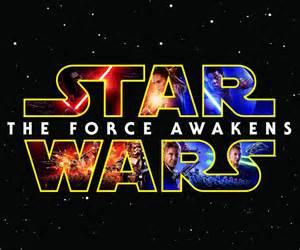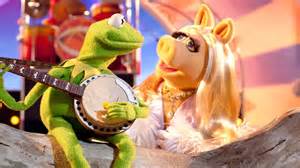
SPOILER ALERT: IF YOU HAVEN’T SEEN THE NEWEST STAR WARS FILM AND SOMEHOW HAVE MANAGED TO AVOID ALL SPOILERS, STOP READING NOW! (And wow, if that’s the case, let me commend you. That’s nearly three months of avoiding every review, article, Tweet, meme, post, etc. about the biggest film of the past year, if not the past decade. That’s some serious self control. Anyway, on to the review ….)
The biggest mistake Disney made in continuing the Star Wars saga wasn’t retreading familiar A New Hope territory. It wasn’t the heroine’s acquiring Force skills at light speed. It wasn’t the bigger, badder Death Star (aka, the nonsensical Starkiller). It wasn’t even killing off Han Solo (although that was wrong on so many levels).
Nope, Disney got it wrong at hello – the title. But not Force Awakens. Not that part of the title.
The real problem with the latest installment in the storied franchise is that it’s labeled “Episode 7.” That’s a rip-off for all the true SW fans out there.
You see, unlike passing fans of Star Wars, the Star Wars mega-fan hasn’t lost touch with the original trilogy storylines and characters for the last 30+ years. That’s because many mega-fans like me – typically in our 40s now — were in the real “sweet spot” of prime toy-buying age when the original trilogy premiered. The opportunity to play with an endless parade of action figures, ships, vehicles and so on etched those characters and that universe into my generation’s hearts forever, and most importantly it engendered our own storytelling. We didn’t just see Star Wars and love it; we saw it, played it, and fantasized new storylines. In short, we made it our own.
We super-fans can quote New Hope and Empire Strikes Back dialog verbatim, we spent endless hours from 1980 to 1983 debating who the “other” hope was, or whether Luke would try to turn his father back to the Light Side. We were disappointed at the Muppet-heavy Return of the Jedi, with its out-of-thin air plot twist of twins Luke and Leia, a de-masked Darth Vader that resembled Humpty Dumpty, and, at the top of the list, those god-awful Ewoks. Of course, we later learned what real disappointment was with Phantom Menace … but that’s a whole other essay.
For uber fans like me, Star Wars wasn’t out of sight, out of mind just because the movies ended. Oh sure, there was Star Wars silence for about 10 years after Return debuted. But the Heir to the Empire book series in the early ‘90s, followed by the re-release of the original trilogy, opened the floodgates for an Expanded Universe of video games, comic books and novels that continued the adventures of Luke, Leia, Han, Chewie and the droids far into the future. Real fans flocked to the EU, because for us these characters are like old friends – and ultimately, that’s what draws us to this universe. Yes, starships and alien planets are cool, and the mystical Force is fun, but when you get down to it, it’s the archetypal main characters who made us fall in love.
Unfortunately, though, while the new characters and actors (Ridley, Boyega, Driver) are fairly enjoyable, it’s the treatment of the old characters where Force Awakens falls flat. Primarily Han, who in the latest installment has regressed to his out-for-himself mercenary A New Hope ways. He’s lost his son to the Dark Side and the Millennium Falcon to some CGI character on Jakku; run away from wife Leia; and abandoned the New Republic/Rebellion/Resistance.
Remember our beloved Han, who raced into a Hoth blizzard to save Luke, despite the fact his Tauntaun was sure to freeze before the first marker (“Then I’ll see you in Hell!)? Who, even as early as the end of ANH, sullenly told Chewbacca he “knew what he was doing” while he collected his prize money, but returned to shoot Vader out of the sky? The scoundrel with a gruff exterior but who on the inside, we just knew, had the heart of a hero? Yeah, that Han’s gone. In his place is a bitter, gruff old geezer who, when confronted with the possibility of a map to his vanished dear friend Luke, basically tells our new heroes he’ll take them to Maz and then, kids – well, you’re on your own.
Yes, Han does get some small redemption by reconciling with Leia, setting out to destroy the Death Star (uh, I mean, Starkiller) and confronting his son. But it’s all done at such breakneck speed that it leaves the fan unfulfilled.
And speaking of “vanished” Luke – his disappearance seems so out-of-character as to be insulting. Remember, this is the Luke who disobeyed Yoda and Obi-Wan by leaving Dagobah and going to save his friends. The one who refused to give up on his father, despite the counsel of his sage mentors (you know, those wise old Jedi who failed to see Palpatine/Sidious right in front of their eyes, and whose solution to the rise of Palpatine and Vader was to hang out on backwater planets and wait for some newborn babies to come of age and save the galaxy – yeah, those guys).
Some argue that Luke’s loss against Vader in ESB proves that he was wrong to dismiss Yoda’s advice, but I always thought this was proof of Luke’s progression beyond the old, failed ways. That he was destined to lead the way to a new – and better – Jedi order. A Jedi order that didn’t have to be monastic and disavow close relationships, but instead could recognize and draw real strength from friendship and even (gasp!) romantic love.
Instead, Force Awakens gives us a Luke who’s seemingly repeated the mistakes of the past, who’s failed to stop an apprentice from killing off the entire Jedi Order (again!), and whose answer, ala Yoda and Obi-Wan, is to run away and let the galaxy go to ruin. I read somewhere that JJ Abrams was convinced to direct Force Awakens because he was intrigued by the question “Who is Luke Skywalker?” Well, all I can say is that if this is who JJ thinks Luke is … Sir, I watched Luke Skywalker, I knew Luke Skywalker, I dreamed of Luke Skywalker. This, sir, is no Luke Skywalker.
Or rather, it’s a broken Luke after many years of pain. And that – as well as his sure-to-happen redemption and return to glory in the next two films – would all be well and good, if we weren’t getting cheated out of the 30 years of intervening story between ROTJ and FA. Which brings us back to Disney’s incomprehensible decision to call this Episode VII (I know, reader, it took me a while to get back to this point – thanks for your patience).
We as fans aren’t getting to see, at least on the big screen, the fruits of our heroes’ labors. We don’t see Luke reestablish the Jedi Order and rebuild the Jedi Temple; we don’t see Han and Leia enjoy some happiness as a couple and start a family, or Leia become a political leader; and we don’t see the Rebellion morph into the New Republic, with successes and growing pains alike. I think I could have swallowed the misery of FA if I had been able, just a little, to behold some small amount of happiness before the heartbreak set in – to see, once again, the trio reunited.
Some will say that ship has sailed, since Mark Hamill, Carrie Fisher and Harrison Ford are all too old now. But that’s malarkey – a young Han Solo film is already in the works, and Abrams’ reboot of Star Trek has proven that it is possible to recast younger actors, even when the original performances were iconic.
If Disney had any foresight, it would have made Force Awakens Episode X – or even later – leaving plenty of room to tell those stories. They’ve announced plans for lots of standalone films focusing on side characters and I’m sure they’ll all be successful, but I maintain that nothing would pack fans in like the continuing saga of Luke, Leia and Han.
It may well be that there are lots of novels (now the official “canon), video games, comics, etc. in the works that are set to fill in the gaps post-ROTJ. Time will tell if that will fill the void. For now, though, “using up” Episode VII on Force Awakens feels like a real missed opportunity – for fans and Disney alike.

